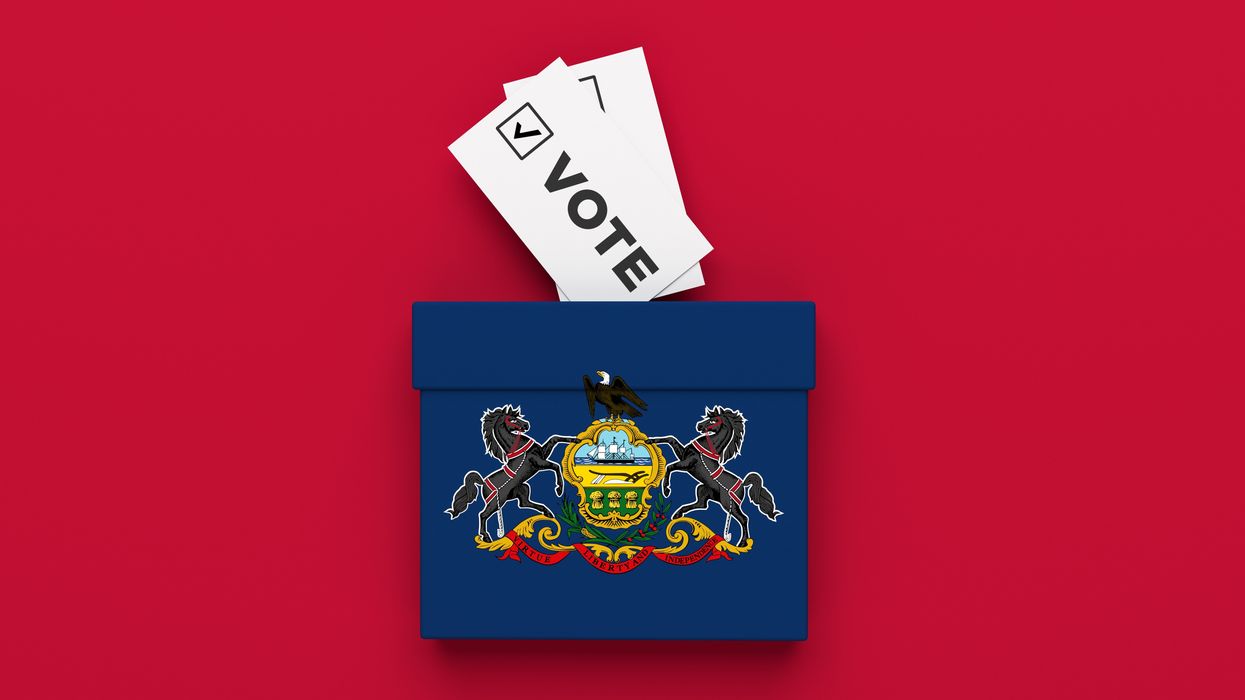While elections work differently depending on where you live, all states have security measures to ensure the integrity of every vote. With that in mind, The Fulcrum presents a six-part series on how elections work in swing states. Created by Issue One, these state summaries focus on each state's election process from registration to certification.
Our freedom to vote in fair and secure elections is the foundation of our system of self-governance established under the U.S. Constitution. As citizens, we have a voice that many people around the world do not.
Because the majority of elections are run at a local level, the voting experience can be very different depending on where a voter lives, but all states, including Pennsylvania, have verification processes in place before, during, and after votes are cast to ensure the integrity of the election.
Here is what you need to know about how elections work in Pennsylvania to make sure that your vote is kept safe and secure and is counted with integrity.
Registration
To ensure their eligibility, all voters must register to vote in order to cast a ballot.
- You can register online, by mail, or in-person.
- The voter registration deadline in Pennsylvania is October 21, 2024.
- For more information see here: https://www.pa.gov/en/agencies/vote.html
Ways to vote
Once registered, a voter in Pennsylvania may either vote in-person or through an absentee ballot. Both options have transparent processes to ensure ballots are kept secure and counted accurately.
Vote with a mail-in or absentee ballot:
- Voters must fill out an application by 5:00 PM on October 29, 2024 to have a mail-in ballot sent to them. Election officials will review the application and confirm that the person applying is a registered voter and eligible to vote.
- Mail-in ballots must be received by 8:00 PM on Election Day, Tuesday, November 5, 2024, to be counted.
- See here for details: ht tps://www.pa.gov/en/agencies/vote/voter-support/mail-in-and-absentee-ballot.html
Vote early in-person:
- Pennsylvania does not have in-person early voting; the only way to vote early in Pennsylvania is through a mail-in ballot.
Vote in-person on Election Day:
- Election Day is Tuesday, November 5, 2024. Polls are open from 7:00 AM to 8:00 PM.
- First-time voters at a polling place must bring a valid ID to vote on Election Day. See here for details: https:// www.pa.gov/en/agencies/vote/voter-support/new-voters.html
- Find more information about voting on Election Day: https://www.pa.gov/en/services/vote/find-your-local-polling-place.html
There are also options for military and overseas voting, more information is available here: https://www.pa.gov/en/agencies/vote/voter-support/mail-in-and-absentee-ballot/military-and-overseas- voters.html
Track your ballot: https://www.pavoterservices.pa.gov/Pages/BallotTracking.aspx
Securely counting every ballot during the voting period
Before, during, and after ballots are cast, Pennsylvania has procedures to review and verify election processes.
- 48 states conduct some type of post-election audit. Pennsylvania is one of 37 states that require a traditional post-election tabulation audit, involving auditable paper ballots. These paper ballots are counted by a tabulation machine under the supervision of election officials and witnesses from the political parties and members of the public. Voters with disabilities may use a different type of machine to help them mark their ballot. These machines must produce a “voter verifiable paper audit trail.”
- All voting equipment in Pennsylvania must meet rigorous security standards and is thoroughly audited. Voting systems are never connected to internet-facing networks, every county board inspects and tests voting and tabulating equipment before an election, and independent vulnerability assessments are performed to verify established protections.
- Mail-in ballots may only be counted once the identity of the voter is verified by the county board.
Polls close and reporting begins
- Counties typically begin reporting unofficial election results shortly after polls close. Counting mail-in ballots may take extra time due to the signature verification process required to ensure the integrity of every vote. No reported results are considered final until the election is certified.
- The unofficial results of elections in Pennsylvania are available on this website starting after polls close at 8:00 PM on election night: https://www.electionreturns.pa.gov/
Certifying the election
- The governing body conducting the election must meet to verify that the unofficial results reported in each precinct or election district were accurate. Final results are only declared after election officials go through steps to verify the count, checking for accuracy and resolving any error. During this process, known as canvassing, election officials thoroughly count every eligible ballot cast, check for duplicates, verify voter status, and give voters a chance to rectify mistakes that might otherwise disqualify their ballot.
- Pennsylvania counties conduct two types of robust post-election audits: a 2% statistical sample recount and a statewide risk-limiting audit (RLA), which compares votes on paper to totals reported by vote-counting machines. These audits help ensure that voting systems were functioning properly and help confirm election outcomes.
- By 5:00 PM on November 12, 2024 every county board of elections must share unofficial returns to the Secretary of the Commonwealth.
- Based on the unofficial results submitted, a recount is triggered on November 14, 2024 if an election margin is .05% or less. The results of the recount are reported on November 27, 2024.
- November 25, 2024 is the last day for the county boards of elections to certify returns with the Secretary of the Commonwealth.
Meeting of the Electoral College
- Pennsylvania’s slate of electors meets on December 17, 2024 to send their certified votes for president and vice president to Congress.
Resources
For more information on how elections work in Pennsylvania, visit the Pennsylvania Voting & Election, Department of State: ht tps://www.pa.gov/en/agencies/vote.html
For additional national and other state-by-state information, go to https://www.howelectionswork.org/


















 From left to right: Gabriel Cardona-Fox, Bud Branch, Joe Concienne
From left to right: Gabriel Cardona-Fox, Bud Branch, Joe Concienne 
Trump & Hegseth gave Mark Kelly a huge 2028 gift